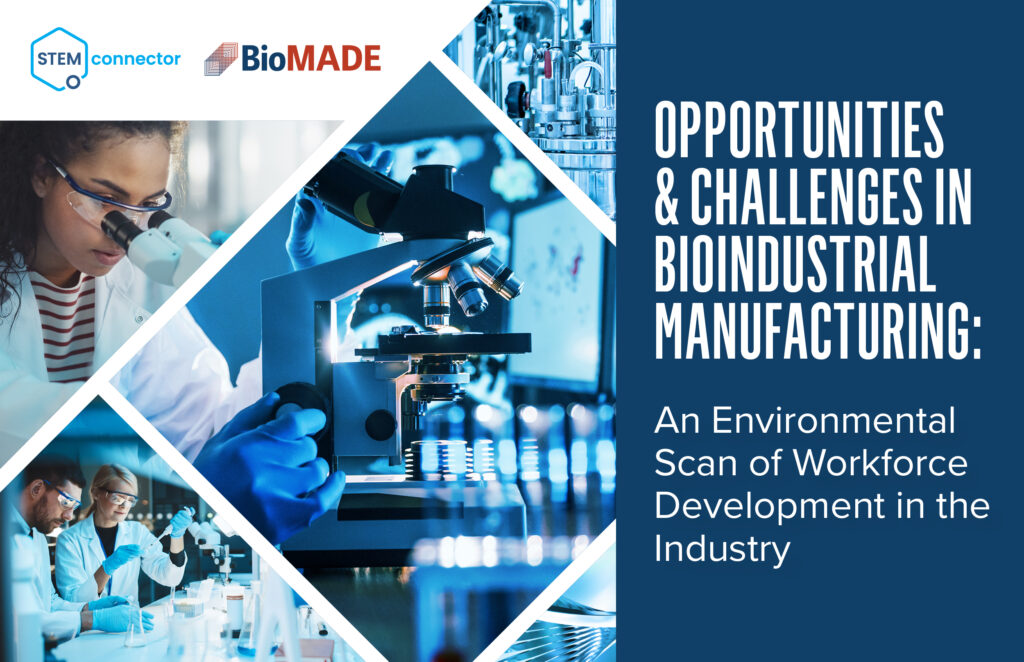In today’s world, it is increasingly apparent that dependence on external sources for materials that are essential to our economy can create significant risks to stability and, consequently, national security. Additionally, as countries continue to come to grips with the looming impacts of climate change, it is clear that actions to mitigate must be taken. For these reasons and others, recent federal and private investments in bioindustrial manufacturing are expected to result in seismic shifts in our nation’s bioeconomy. Innovations in fields like bioengineering, synthetic biology, and biotechnology are driving the development of new strategies for meeting the challenges of sustainability and national security.
Over the last year, STEMconnector has established a new partnership to explore what this emerging technology might mean for the nation’s STEM education and workforce development systems. Bioindustrial manufacturing leverages the science of biology to develop new industrial products that can reduce pollution, decrease the need for petroleum-based materials, and address global issues like climate change, by creating sustainable alternatives, such as bioplastics and biofuels. To gather facts and inform solutions in this critical area, BioMADE – Bioindustrial Manufacturing and Design Ecosystem – a public-private partnership, the eighth Department of Defense (DoD)-sponsored Manufacturing Innovation Institute (MII), funded STEMconnector’s study of the factors impacting the landscape of the bioindustrial manufacturing industry.
“Opportunities & Challenges in Bioindustrial Manufacturing: An Environmental Scan of Workforce Development in the Industry” examines the current factors that are impacting the advancement of a resilient bioeconomy and the workforce for the future. Our research team consulted leading experts from this field to identify current gaps and potential undiscovered assets that can contribute to improving the bioindustrial manufacturing workforce and increase understanding about the political, economic, sociocultural, technological, environmental, and legal factors that are changing the industry. The research questions guiding this work include:
- What opportunities, challenges, trends, and threats currently exist in the bioindustrial manufacturing ecosystem?
- What are the gaps in the bioindustrial manufacturing workforce?
- What are recommendations for enhancing the bioindustrial manufacturing industry?
This environmental scan of the bioindustrial manufacturing landscape provides insights about the powerful dynamics that are at play in this rapidly evolving field and unveils opportunities for careers that range from creating environmentally friendly alternative proteins, to research that supports long term human presence in space. Findings include political breakthroughs, such as the Inflation Reduction Act and the CHIPS and Science Act of 2022, which are likely to change the future of the bioindustrial manufacturing industry and workforce development in bioindustrial manufacturing.
Download the Environmental Scan here.
